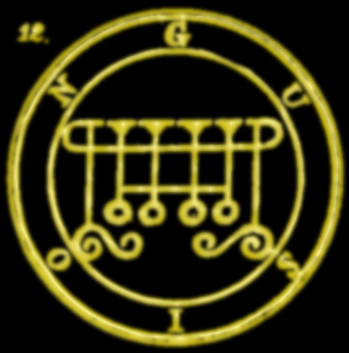Interesting things happen in people’s heads when you tell them you’re a fan of Chuck Palahniuk’s work, and almost none of them are good. Even if you’re talking to another Palahniuk fan.
Yeah, there’s violence and gross stuff in his books. No more though than I recall from stories we’d tell one another around the cafeteria tables in high school, trying to score points by making each other spit food out of our mouths or snort it out of our noses or–a rare bonus–put one of our comrades off his or her feed so that whoever had stomach enough afterwards could finish the abandoned meal. It’s possible I may be speaking here from a somewhat desensitized viewpoint. I understand this. But the point I’m making is that a bunch of hobbyist amateurs were just as good at the gross-out.
Saying you’re a Palahniuk fan, though, isn’t necessarily saying that you’re a fan of the violence and gore and downright disgusting elements that makes reading a Palahniuk novel pretty much the same as taking your chances tipping back a box of Bertie Bott’s Every Flavor Beans. It’s not just about the gross-out.
One of Palahniuk’s recurring themes is that of people in search of real experiences instead of filtered, prettified, Photoshopped, video-edited, recorded, and packaged experiences. People who think that, even if there is nothing new under the sun, they should at least experience the sun for themselves. This was a major theme in Fight Club and a minor one in Rant. Critics claim a bit of recycling is going on here, but speaking as an author, I know what it’s like to not get everything you have to say all out of you in one go. Fight Clubs and Party Crashers might have similar motivations, but there’s nothing much in either one of those you won’t find in people who go to live concerts or raves or sporting events or even church–depending on the church, and it’s pretty much the reason for taking any drug you might be fond of: personal experience and a shared high. That’s not a cool new thing he’s invented. He’s giving you a look at a really old phenomenon, but he’s putting it in a new package so you’ll see it in a fresh way.
I like Palahniuk because I like the way he tells stories. I also like the stories he chooses to tell. But primarily it’s the first thing.
It’s hard to tell a story. You require an enormous amount of complicity from your audience. You can’t just throw words at someone and hope to keep them interested and involved. You have to help your audience achieve some kind of state where your words create an experience for them–a filtered, prettified, Photoshopped, video-edited, recorded, and packaged experience, but an experience nonetheless.
A quick aside: if you think Palahniuk is preaching that people should have their own high-impact experiences instead of dealing strictly in the prepackaged, then understand you’re accusing an author of preaching against books. Accusing a storyteller of preaching against stories. Whatever. And if you think Palahniuk doesn’t get the irony of that, then ask him why his latest written work is subtitled An Oral Biography of Buster Casey. Oral biography. Written. Get it?
Anyway. It’s hard to tell a story. It’s hard to get people’s attention long enough to say anything. It’s even harder to get them to pay you for the privilege. You can go all the way back to the first written stories to watch the struggle. The first oral stories, even. Rhyme and meter and repetition weren’t there for the first epic stories just to help the storytellers remember the words. Rhythm, in particular, is essential for putting your audience into a trance so you can dump images into their hypnotized heads. Music and song were the first effective storytelling tools. Because of that trance thing.
After verse, authors struggled a bit. The birth of the novel was a difficult one. Some of the original ideas included presenting a story as a stack of correspondence. Letters and postcards. Authors still resort to this regardless of how poorly it works. Because not all of your correspondents can be, themselves, storytellers. When they are, the readers wonder why, and it breaks things. Like sometimes we’re forced to wonder why everyone in movies is gorgeous. It’s tricky.
Palahniuk tells good stories and he tells them well. Frequently he makes his characters (believably) storytellers and he makes them tell their stories. I dig that. It almost always works. Even though it’s tricky.
Part of the trick is that he has a grasp of rhythm. On many different scales. And that’s really tricky when you’re working with written stuff. The emphasis on syllables, the sounds letters make, the silences and beats generated by punctuation–making your readers breathe only when you want them to so you can enforce the mood and tone–this is fucking mind control and it’s an old science. One of Palahniuk’s characters in Rant is more than willing to teach you some of it if you care to take a few notes.
With written word you even have to pay attention to the shapes of the letters. Curves and lines and sticky-uppy and sticky-downy bits–as your eyes saccade across the line of text, the rhythm of the shapes has just as much of an impact as anything else, which is why choice of typeface is an important factor in book design. Or can be, depending on what’s being said. You choose words sometimes based on how they look as well as how they sound, and for how they can sometimes be mistaken for other words if you’re in a hurry and not paying attention. Well. At least you can if you feel like doing the work. If it seems like it’s important for that particular piece.
My point is Palahniuk is good at this stuff. I really can’t tell if he does much of it consciously, but I suspect he does. It’s not necessary for a writer to be conscious of what he’s doing in the very same way that a dancer doesn’t have to be conscious of every individual muscle movement in order to be graceful. But conscious or not, intentional or not, he’s good at it, and I appreciate it. He sure as hell can filter, prettify, Photoshop, video-edit, record, and package an experience–intense, personal, and shared, just like church. Or a drug. Or live music. It’s tricky.
[*]







960da70695440922ab6cbd56f5fd50c0…
960da70695440922ab6cbd56f5fd50c0…
Look, everybody! I’m a Numbers Station!
[*]